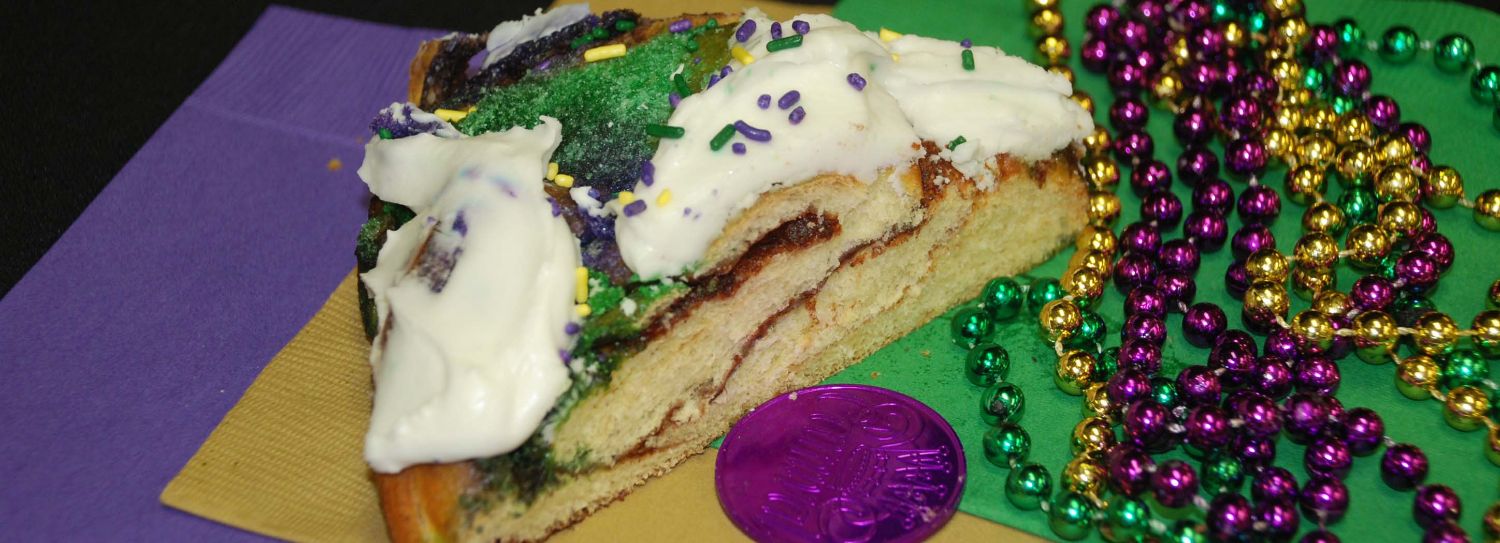WE WILL RE-OPEN AGAIN THIS CHRISTMAS SEASON!
LOOK FORWARD TO SEEING YOU THEN
History of King Cakes
The history of the colors on a king cake is also deep and intriguing. Most king cakes are traditionally decorated in royal colors of purple, which signifies “justice,” green for “growth,” and gold meaning “prosperity and wealth.” These colors can be seen as chosen to resemble a jeweled crown honoring the three wise men and their gifts during the visit of the Christ Child on Epiphany.

In the past, such things as coins, beans, pecans, or peas were also hidden in each king cake as a little prize to find for one lucky eater. Today, a tiny plastic baby is the most commonly-used find, though edible chocolate babies or other edibles are sometimes used instead. At a Mardi Gras party, the king cake is sliced and served fresh. Each reveler looks to see if their piece of king cake contains the small baby. If so, then that person is declared “king for a day” and bound by historical Mardi Gras custom to host the next party. Of course, this also means that they need to provide the next king cake!
The modern American Mardi Gras, aka Carnival season, officially begins on January 6th or the Twelfth Night, also known to Christians as the Epiphany. The word “epiphany” comes from a Greek verb that means “to show.” Therefore, this pays tribute to the Catholic belief that Jesus first showed himself to the three wise men and to the larger world on this day. Mardi Gras has a moveable date and may occur on any Tuesday from February 3rd to March 9th. It’s always the day before Ash Wednesday, and it always falls 46 days before Easter.
That’s the rich history of king cake! If you’re interested in digging into a bite of Mardi Gras history for yourself, reach out to Randazzo King Cakes for a slice of tradition and fun for the whole crew. Who knows? You might just be declared a king!